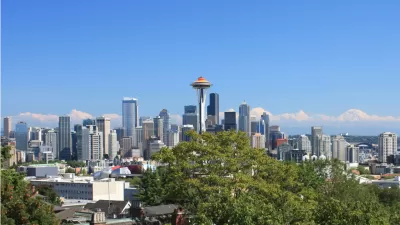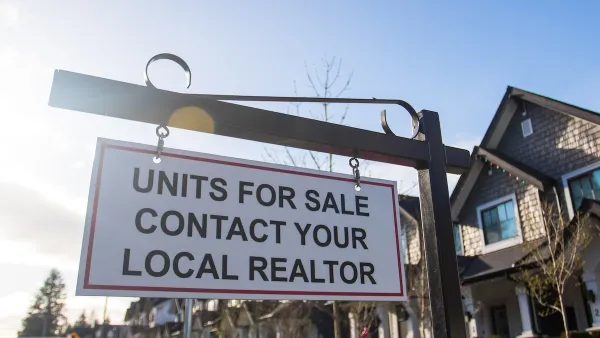Rachel Dovey details a new report that finds boom-era trends of gentrification persisted in urban areas throughout the effects of the post-2007 recession.

The conclusion of the report from the Federal Reserve Bank of Cleveland, as summarized by Dovey: "Urban neighborhoods were hot spots for redevelopment before the economy collapsed, and some have continued to gentrify post-recession."
"Portland, Seattle, Denver, Minneapolis and Washington, D.C. continue to see incomes rise in their urban core. Atlanta, where city-center wealth spiked before the recession, has not continued to gentrify. And post-boom Cincinnati is witnessing a surprising surge in city-center income," writes Dovey.
"The report points out that changes in income ranking over time were actually driven largely by poor neighborhoods that gained wealth, not wealthy neighborhoods that became even wealthier — a trend the report calls “consistent with gentrification.'"
FULL STORY: These Cities Have Held Onto Pre-Bust Gentrification Highs

Planetizen Federal Action Tracker
A weekly monitor of how Trump’s orders and actions are impacting planners and planning in America.

Maui's Vacation Rental Debate Turns Ugly
Verbal attacks, misinformation campaigns and fistfights plague a high-stakes debate to convert thousands of vacation rentals into long-term housing.

Restaurant Patios Were a Pandemic Win — Why Were They so Hard to Keep?
Social distancing requirements and changes in travel patterns prompted cities to pilot new uses for street and sidewalk space. Then it got complicated.

In California Battle of Housing vs. Environment, Housing Just Won
A new state law significantly limits the power of CEQA, an environmental review law that served as a powerful tool for blocking new development.

Boulder Eliminates Parking Minimums Citywide
Officials estimate the cost of building a single underground parking space at up to $100,000.

Orange County, Florida Adopts Largest US “Sprawl Repair” Code
The ‘Orange Code’ seeks to rectify decades of sprawl-inducing, car-oriented development.
Urban Design for Planners 1: Software Tools
This six-course series explores essential urban design concepts using open source software and equips planners with the tools they need to participate fully in the urban design process.
Planning for Universal Design
Learn the tools for implementing Universal Design in planning regulations.
Heyer Gruel & Associates PA
JM Goldson LLC
Custer County Colorado
City of Camden Redevelopment Agency
City of Astoria
Transportation Research & Education Center (TREC) at Portland State University
Jefferson Parish Government
Camden Redevelopment Agency
City of Claremont




























